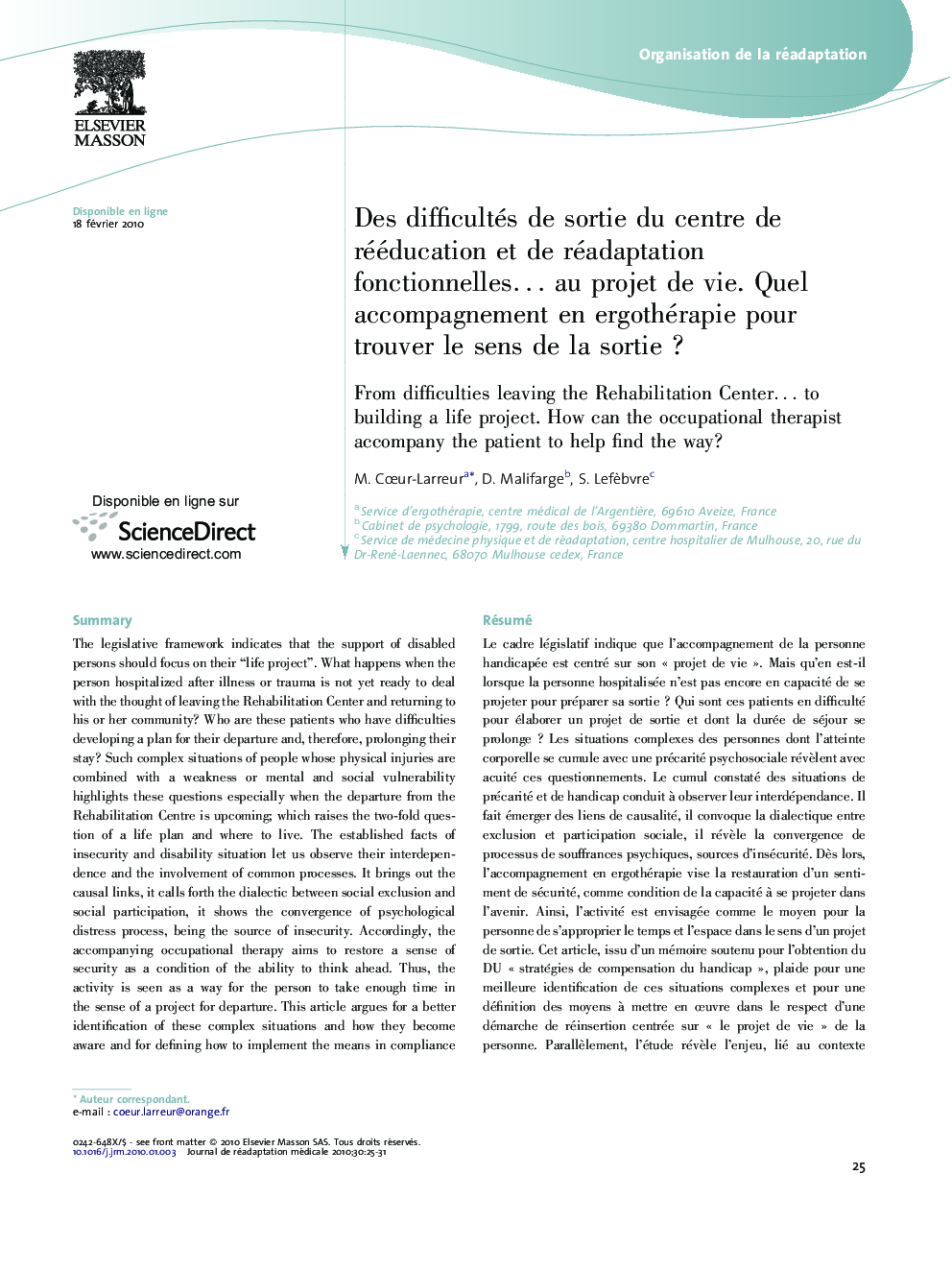| Article ID | Journal | Published Year | Pages | File Type |
|---|---|---|---|---|
| 2706250 | Journal de Réadaptation Médicale : Pratique et Formation en Médecine Physique et de Réadaptation | 2010 | 7 Pages |
Abstract
The legislative framework indicates that the support of disabled persons should focus on their “life project”. What happens when the person hospitalized after illness or trauma is not yet ready to deal with the thought of leaving the Rehabilitation Center and returning to his or her community? Who are these patients who have difficulties developing a plan for their departure and, therefore, prolonging their stay? Such complex situations of people whose physical injuries are combined with a weakness or mental and social vulnerability highlights these questions especially when the departure from the Rehabilitation Centre is upcoming; which raises the two-fold question of a life plan and where to live. The established facts of insecurity and disability situation let us observe their interdependence and the involvement of common processes. It brings out the causal links, it calls forth the dialectic between social exclusion and social participation, it shows the convergence of psychological distress process, being the source of insecurity. Accordingly, the accompanying occupational therapy aims to restore a sense of security as a condition of the ability to think ahead. Thus, the activity is seen as a way for the person to take enough time in the sense of a project for departure. This article argues for a better identification of these complex situations and how they become aware and for defining how to implement the means in compliance with a rehabilitation approach focused on “the life project” of the person. In addition the study reveals issues linked to the current reform of the financing of the “soins de suite et de réinsertion” (“combined care and rehabilitation system”). With regard to the personal course of the patient, considering the length of stay as the principal criteria for determining the financial value goes against the objectives of units such “soins de suite et de réinsertion” (SSR).
Keywords
Related Topics
Health Sciences
Medicine and Dentistry
Orthopedics, Sports Medicine and Rehabilitation
Authors
M. CÅur-Larreur, D. Malifarge, S. Lefèbvre,
